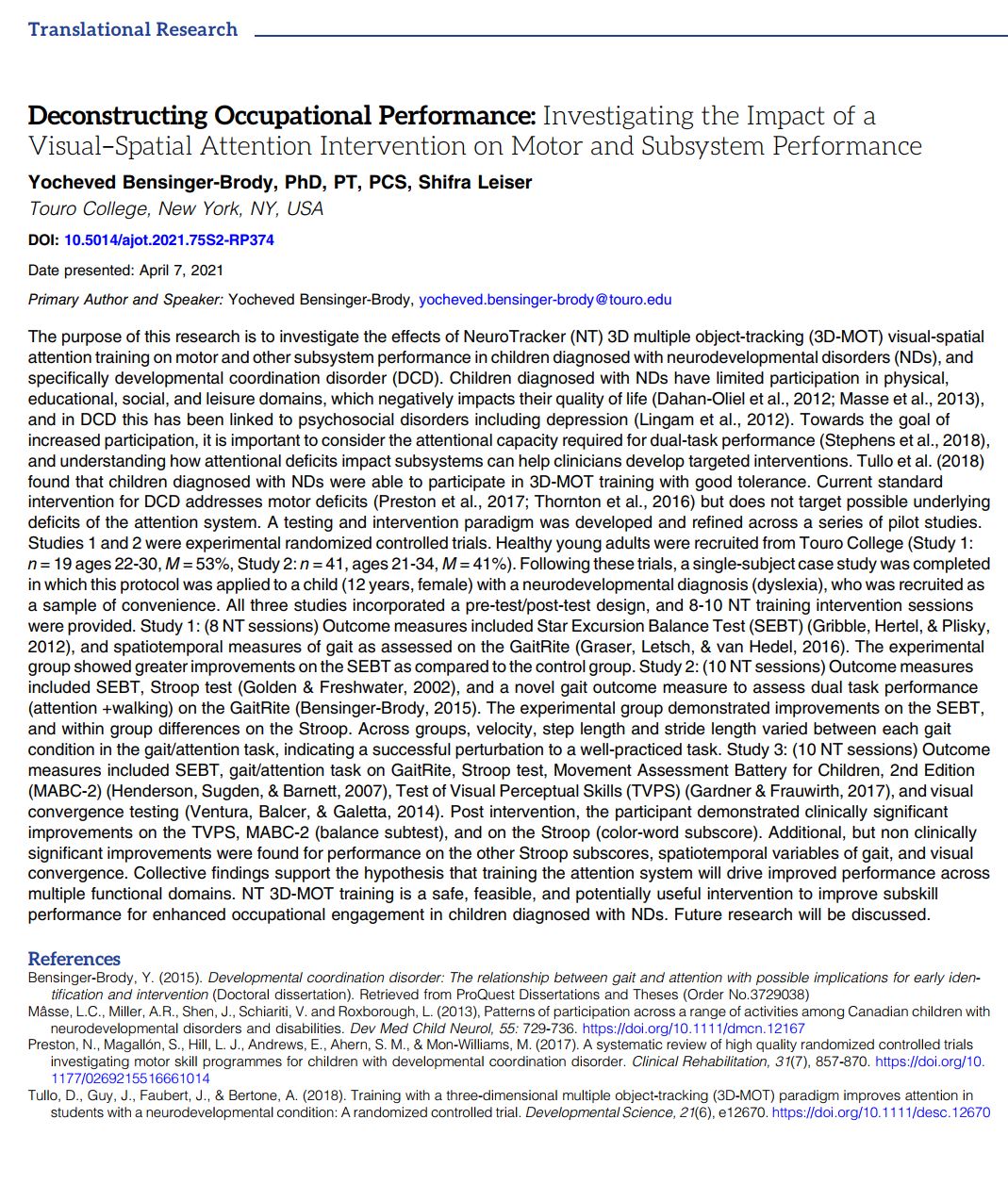Welcome to the Research and Strategy Services at in today's fast-paced.


Professor Faubert talks with the NeuroTracker team on how healthcare is being transformed, and how this neurotechnology is playing a front role through the innovative new partnership just signed with Bayer G4A.
Well, essentially it means leveraging new and evolving technologies that are not traditionally used in healthcare, yet have a lot to offer. Everyone is aware of how smart wearables are now becoming a bit like a personal doctor on your wrist or in your pocket, but it’s much broader than that. It can include everything from advances in AI to the latest in miniaturized robotics. The challenge is how to actually implement these innovations into existing healthcare infrastructure with appropriate medical regulation, which is not easy.
Sure. Large pharma companies like Bayer are now looking to expand their health services into the digital space, but it’s a very dynamic and fast-moving place to navigate. There were over 800 emerging technology companies that entered this competition, and the idea is that Bayer can help accelerate these companies into the market, while at the same time leveraging their innovation and expertise to expand their own position in digital health. NeuroTracker was the only company selected for oncology, with the goal of bringing neuroscience innovation into cancer care.

Generally speaking, cancer often comes with a lot of problems for the brain. This could involve the disease itself, side effects of treatments, or other factors associated with coping with cancer, such chronic stress and anxiety. Not much is understood in terms of these combined effects on brain function, so we’re hoping NeuroTracker will provide a new window into the brain that will be practical to use. It’s a new area for us, so we’re at the beginning and there is a lot to learn, but I’m genuinely pleased to be working with Bayer oncology experts and putting science first and foremost in this partnership.
You know we’ve been developing and evolving NeuroTracker in the commercial space for over a decade now, and before that there were years of research behind it in the lab. I think NeuroTracker provides a great role model in that it’s really grown out of a combination of pure science and professional experts who understand how it can be applied in the real-world. And from the beginning we’ve always had this nice feedback loop between neuroscience and applied use.
This is one of the reasons why there are so many independent researchers and institutes using NeuroTracker, and a key reason why we’ve been selected by Bayer and other major health companies to partner with. You ideally you want scientific expertise to be merged with industry-specific expertise, and I think when it comes to other companies in digital health, NeuroTracker sets the right standards to follow.
There is a big benefit for sure, and that’s bringing expertise and resources into large scale clinical studies in the neuroscience domain. This is quite rare in neuroscience, as commercially speaking, it’s still a relatively young industry. Neuroscientists rarely get to access knowledge from the type of studies typical in big pharma, which are carried out on very large scales, both in the number of participants and the timescales. As a lifelong scientist, I see the Bayer partnership as a great opportunity to be involved in this type of new collaboration between the health and neuroscience.
It’s always hard to predict the future, but what we do see now is a clear emergence of technologies that have the potential to play a big role in both our daily and long-term health. The first challenge is qualifying which ones are genuinely going to have a positive impact, which is why scientific validation is crucial. The second challenge is getting them to market in the medical space. This is difficult right now, because whether or not somebody can benefit from taking a particular drug, is very different to whether or not they should be using technology in a certain way.
That said I think we’re on the cusp of overcoming these challenges in a big way. The Digital Therapeutics Alliance is a great example of this, helping to set new standards of healthcare, as well as working with the FDA to adapt medical approval processes. When you have this combined with cross-industry partnerships merging their expertise and commercial knowledge, I think we can expect to see healthcare dramatically redefined in the next 10 years. We’re going to see technology move a lot of healthcare services from clinics and hospitals into our homes, keeping us connected to the support that’s needed, when we need it.
Well there’s a clear answer that comes to mind, but of course I’m clearly biased as a neuroscientist. That said, I really do think it will come from how we understand the truly pivotal role our brain plays in our in our total wellbeing. Even in 2019, we understand physical health pretty well, but when it comes to the brain there’s still lots to learn, and that is changing really fast. Within a decade I think we’ll discover the fundamental ways in which the brain and body are intimately connected, and this will spawn a new generation of healthcare solutions.

Professor Jocelyn Faubert is Director of the Faubert Lab and the Faubert Applied Research Center, as well as the mastermind behind NeuroTracker. Deemed the ‘world’s most preeminent expert in the field of visual perception’, he has worked on the neuroscience underpinning NeuroTracker for over 25 years. Described by the New York Times as “an evergreen optimist with charismatic energy” with the ability to “distill expansive concepts into digestible bites”, he’s known to sum up NeuroTracker as “the gymnastics of the brain”. In a way that is surprisingly unusual for a neuroscientist, Professor Faubert makes both the complexity and relevance of neuroscience understandable.
To find out more about how NeuroTracker and G4A are set to change the health industry, read our recent blog below. And if you'd like hear Professor Faubert introduce and explain the concepts behind NeuroTracker, then also check out these video interviews.
NeuroTracker is Frontlining the Digital Health Revolution








Welcome to the Research and Strategy Services at in today's fast-paced.

Learn about Marc Van Loken's growing mission for brain health advocacy with Marvalous Health.

Understand the unique challenges of gifted ADHD kids and strategies to help them find balance.

Learn about two pioneering centers led by Dr. Kakavas that integrate neuroscience, biomechanics, and elite rehabilitation methods.
.png)